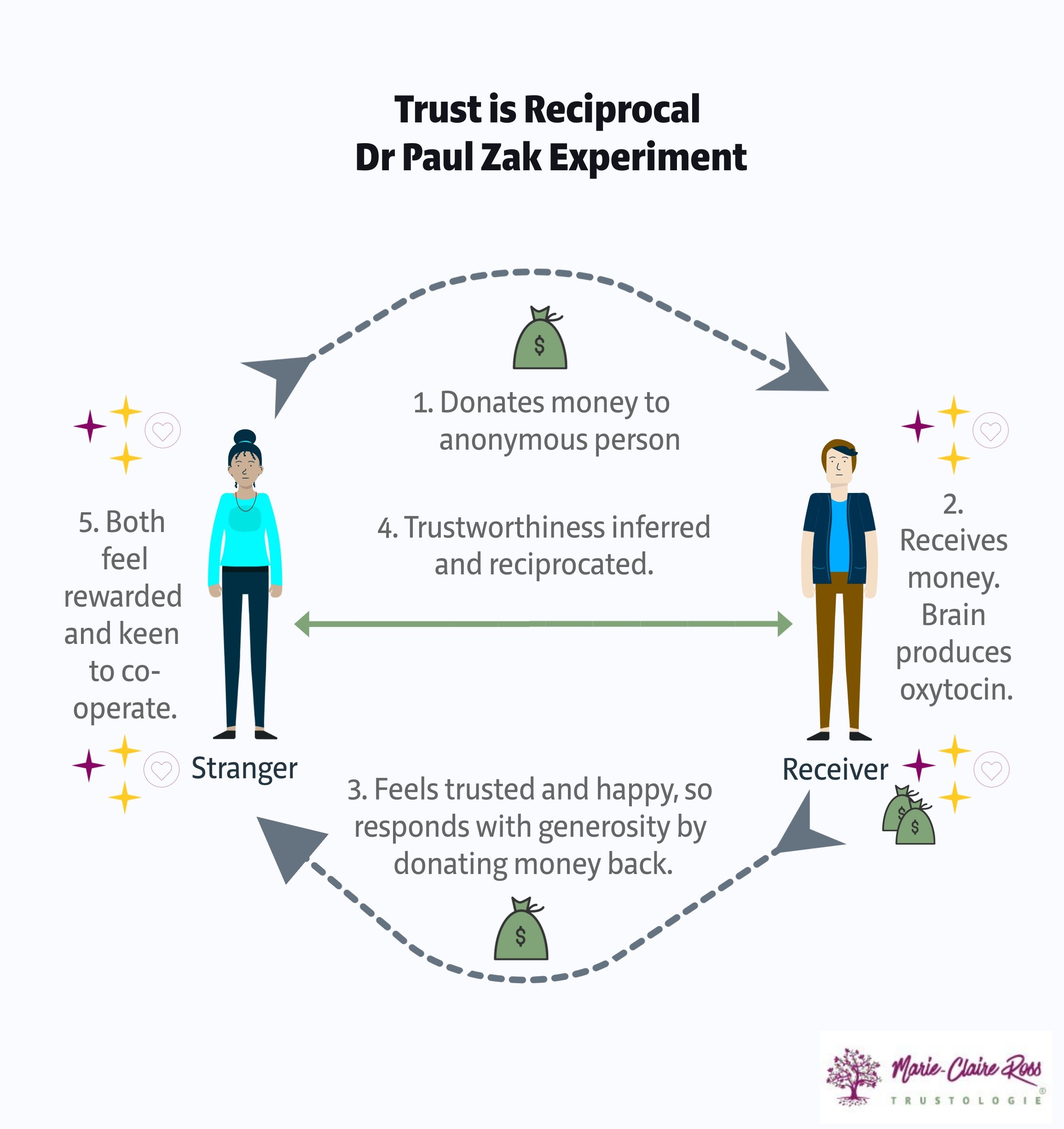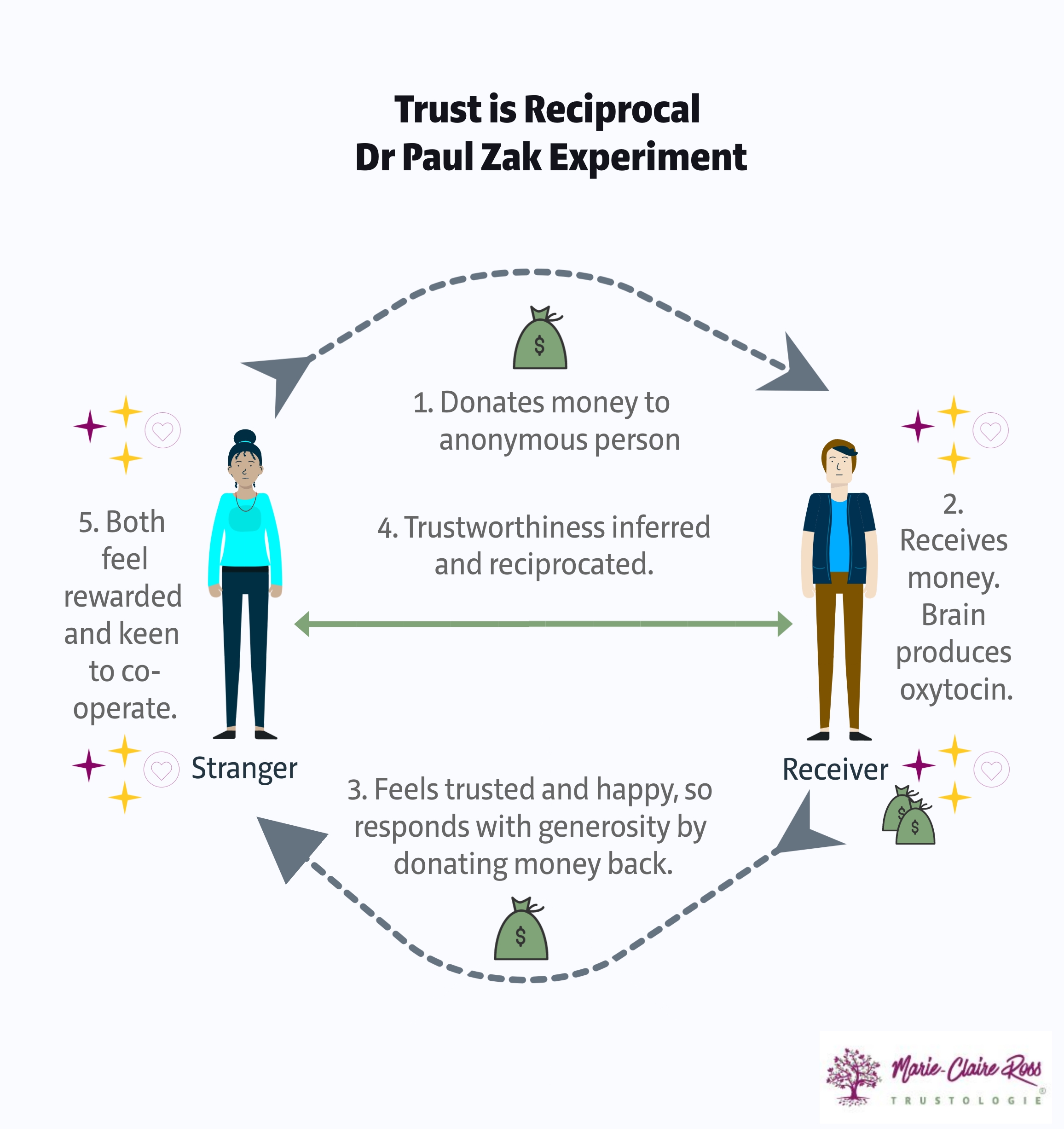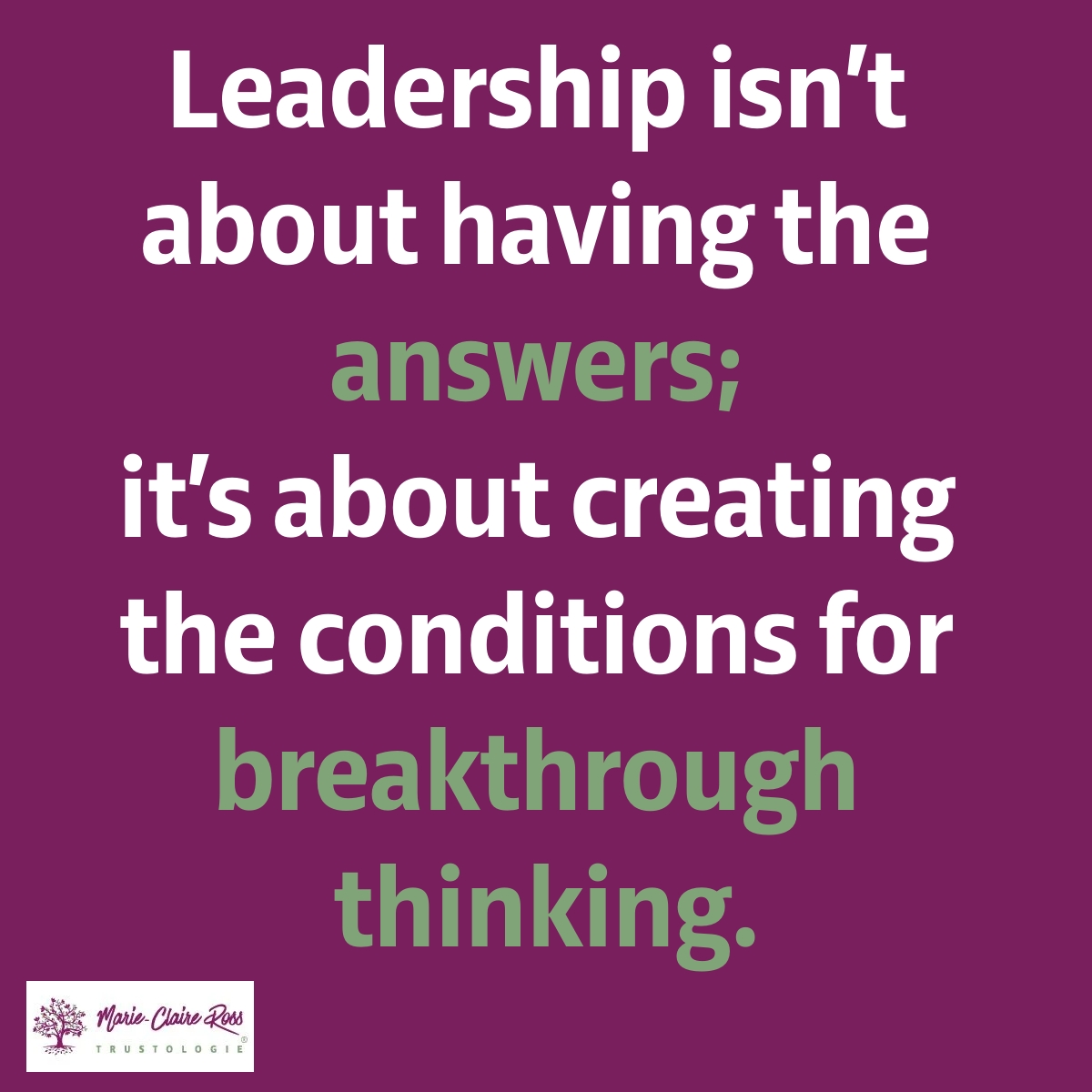8 min read
Beyond the "Why": 5 Coaching Secrets to Unlock Curiosity in Leadership
When my daughter was 17 months old, she discovered a superpower: the word “Why?”For the next two years, it was her response to almost everything.
Develop leaders, strengthen executive teams and gain deep insights with assessments designed to accelerate trust and performance.

Transform how your leaders think and perform with keynotes that spark connection, trust and high-performance cultures.

Explore practical tools, thought-leadership and resources to help you build trusted, high-performing teams.

Trustologie® is a leadership development consultancy founded by Marie-Claire Ross, specialising in helping executives and managers build high-trust, high-performing teams.


A common statement that (older) leaders assert is that trust must be earned. Many a time I've had to listen politely while a CEO or senior executive tells me (uninvited) how they believe trust has to be earned. That if you give trust, people will take advantage of you.
And then other times, people will tell me that they believe trust is given first. Interestingly, such leaders tend to not try to convince me so rigourously.
But here's the thing. It's neither.
Trust is reciprocated. It's an exchange between two or more people.
Trust begets trust.
Don't believe me? Well, this is where social science holds its own. It is how the brain works and can be proved scientifically.
Back in the early 2000's, Dr Paul Zak, a neuroscientist, ran a multitude of studies on trust. What he found was that when someone tangibly trusts a stranger the brain produces more oxytocin.
Oxytocin is the happy feeling we get when we are around good friends. It’s that feeling that makes us perform acts of generosity and it is produced through positive social interactions.
When we co-operate and look out for others or when people trust us, oxytocin rewards us with feelings of security, trust, belonging and camaraderie. It creates a virtuous cycle where the more everyone trusts each other, the more they feel better about themselves and each other.
In experiments, blood was drawn before and after people were trusted in situations to measure the surge in oxytocin.

We often don’t realise that trust is measured in both directions. The reality is we only trust people who trust us. We don’t trust people who don’t trust us.
Starting a relationship by withholding trust is extremely damaging. When we demand that trust has to be earned, we forget that other people are also assessing whether we can be trusted. Not only does this send the wrong signal out to others, but it stops the opportunity for oxytocin to flow, on both sides. It wastes a lot of time.
Low trust people trust tend not to trust others creating a cycle of distrust that impacts everyone around them. It also becomes part of their experience creating a dangerous self-fulfilling prophecy.
At the same time, trusting people implicitly without any boundaries or expectations is also fraught with issues. Communicating clearly about your expectations is critical in any work situation (a good tool is the trust battery metaphor).
“Trust men and they will be true to you; treat them greatly and they will show themselves great.” Ralph Waldo Emerson

8 min read
When my daughter was 17 months old, she discovered a superpower: the word “Why?”For the next two years, it was her response to almost everything.

11 min read
I have a friend who often finds herself at the mercy of her emotions. Recently, she called me to rehash a confrontation she’d had with a group of...

9 min read
True leadership presence isn’t a performance or a set of charisma hacks; it is the felt experience of who you are being in the room. By cultivating...

In the race to build our careers, we default into doing what we learnt at school – by building our skills and knowledge. We assume that being smart...

According to the Hoffman Institute, 90% of our reactions are emotional. In fact, our emotions respond 400 times faster than our intellect.

One of my darkest times as an entrepreneur was winning the contract to undertake all of the audiovisual requirements at Fashion Week. It involved...